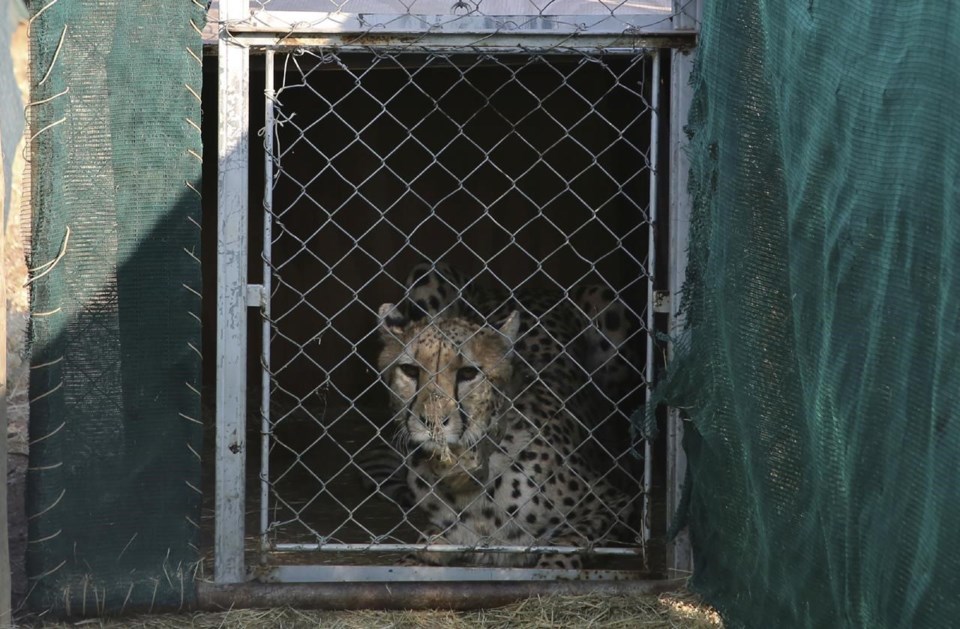NEW DELHI (AP) — India welcomed 12 cheetahs from South Africa on Saturday that will join eight others it received from Namibia last year as part of an ambitious drive to reintroduce the big cats in the country after 70 years.
An aircraft carrying the cheetahs landed at Gwalior Air Force base, the Press Trust of India news agency reported. The cats will then be flown in helicopters to Kuno National Park in India's Madhya Pradesh state, where they will be released into quarantine enclosures.
In January, India said it planned to import 12 cats annually for the next eight to 10 years as part of an agreement signed by the two African countries.
Cheetah populations in most countries are declining. South Africa, where the cats are running out of space, is an exception.
The eight cheetahs flown from Namibia were released into the sprawling Kuno National Park in central India in September.
Cheetahs were once widespread in India but became extinct in 1952 from hunting and loss of habitat. They remain the first and only predator to die out since India’s independence in 1947. India hopes that importing African cheetahs will aid efforts to conserve the country’s threatened and largely neglected grasslands.
There are fewer than 7,000 adult cheetahs in the wild globally, and they now inhabit less than 9% of their original range. Shrinking habitat, due to the increasing human population and climate change, is a huge threat.
The Associated Press



